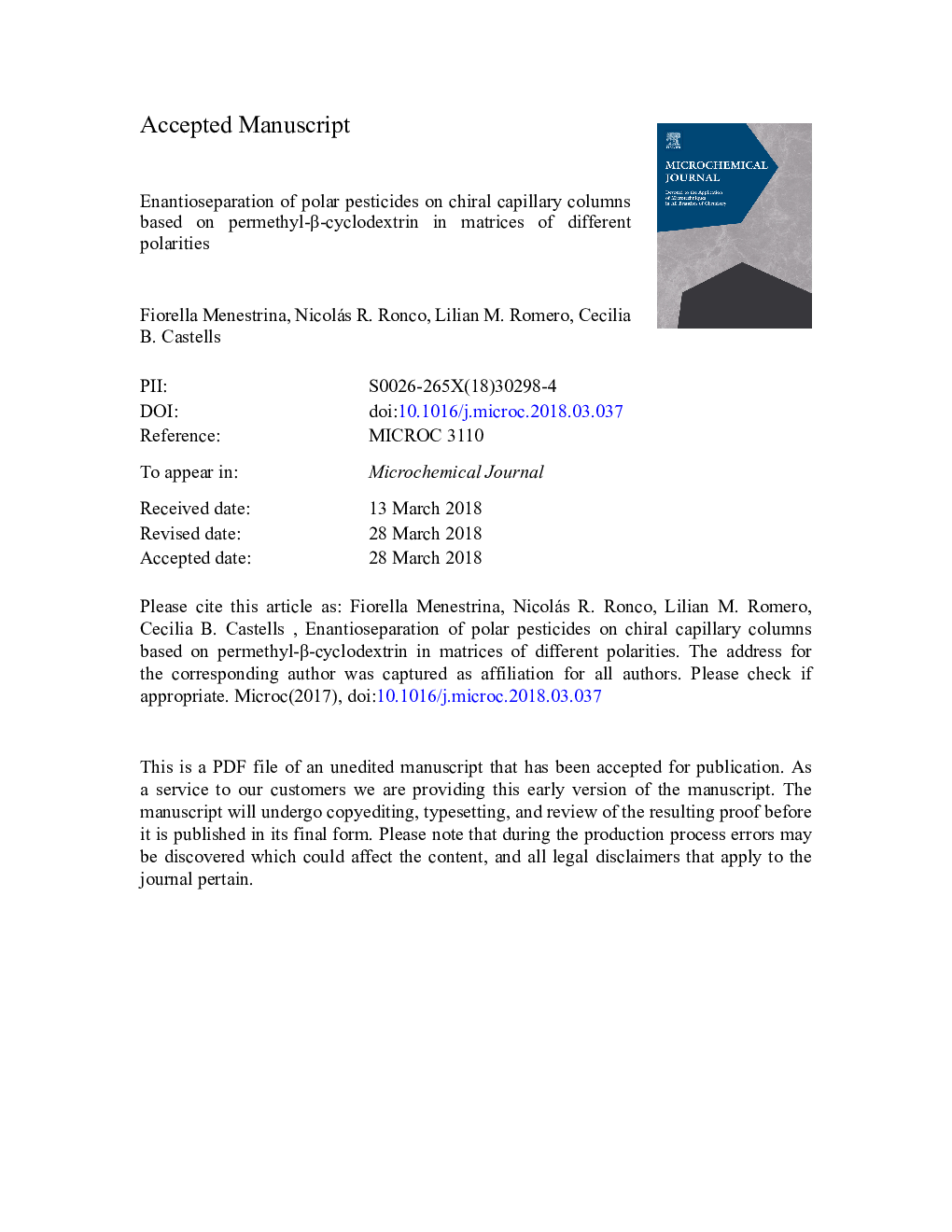| Article ID | Journal | Published Year | Pages | File Type |
|---|---|---|---|---|
| 7640324 | Microchemical Journal | 2018 | 24 Pages |
Abstract
This work describes the influence of different achiral polymers used to dissolve permethyl-β-cyclodextrin (PM-β-CD) on the gas chromatographic enantioresolution of racemic mixtures of polar pesticides (mecoprop, dichlorprop, fenoprop and hydroprop esters, fenoxaprop ethyl, metalaxyl, and haloxyfop esters). One main objective was to introduce a single column for robust and sensitive enantioseparations of several and different polar pesticides, which have to be chromatographed at relatively high temperature (unfavorable condition for enantiodiscrimination). In particular, the ability of capillary columns coated with PM-β-CD dissolved in either (14%-cyanopropylphenyl)(1%-vinyl)-86%-methylpolysiloxane (OV-1701-vi), (5%-phenyl)(1%-vinyl)-95%-methylpolysiloxane (SE-54) or in polyethyleneglycol (Carbowax 20 M), to resolve the racemates of the aforementioned pesticides was evaluated. An analogous commercial column, Hydrodex β-PM, was taken as reference. In addition, the influence of the achiral polymer in the availability of selector for enantioselective interactions with those pesticides was studied. Enantioseparations achieved with the phase based on the less polar polysiloxane SE-54 were higher for most chiral pesticides as compared with those obtained with PM-β-CD mixed in more polar polymers. The results furthermore indicate that a single column based on PM-β-CD/SE-54 exhibited great potential for application in the separation of a wide variety of polar pesticides and their derivatives.
Related Topics
Physical Sciences and Engineering
Chemistry
Analytical Chemistry
Authors
Fiorella Menestrina, Nicolás R. Ronco, Lilian M. Romero, Cecilia B. Castells,
